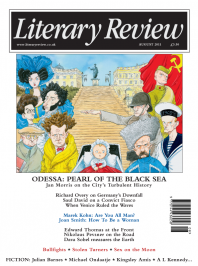Jonathan Sumption
Fingering the Evidence
Holy Bones, Holy Dust: How Relics Shaped the History of Medieval Europe
By Charles Freeman
Yale University Press 306pp £25
The veneration of relics is one of the most ancient and enduring practices of the Christian Church. It is attested by unimpeachable evidence as early as the second century and is almost certainly older than that. It persists, albeit in a more moderate and controlled form, to the modern day, as the occasional exhibitions of the Turin shroud and the blood of St Januarius in Naples attest.
In the first centuries, when Christianity drew most of its adherents from the educated aristocracy and urban middle class of the late Roman Empire, the veneration of relics drew its main impulse from the desire of Christians to commemorate the lives of Christian heroes, generally local victims of

Sign Up to our newsletter
Receive free articles, highlights from the archive, news, details of prizes, and much more.@Lit_Review
Follow Literary Review on Twitter
Twitter Feed
It wasn’t until 1825 that Pepys’s diary became available for the first time. How it was eventually decrypted and published is a story of subterfuge and duplicity.
Kate Loveman tells the tale.
Kate Loveman - Publishing Pepys
Kate Loveman: Publishing Pepys
literaryreview.co.uk
Arthur Christopher Benson was a pillar of the Edwardian establishment. He was supremely well connected. As his newly published diaries reveal, he was also riotously indiscreet.
Piers Brendon compares Benson’s journals to others from the 20th century.
Piers Brendon - Land of Dopes & Tories
Piers Brendon: Land of Dopes & Tories - The Benson Diaries: Selections from the Diary of Arthur Christopher Benson by Eamon Duffy & Ronald Hyam (edd)
literaryreview.co.uk
Of the siblings Gwen and Augustus John, it is Augustus who has commanded most attention from collectors and connoisseurs.
Was he really the finer artist, asks Tanya Harrod, or is it time Gwen emerged from her brother’s shadow?
Tanya Harrod - Cut from the Same Canvas
Tanya Harrod: Cut from the Same Canvas - Artists, Siblings, Visionaries: The Lives and Loves of Gwen and Augustus John by Judith Mackrell
literaryreview.co.uk